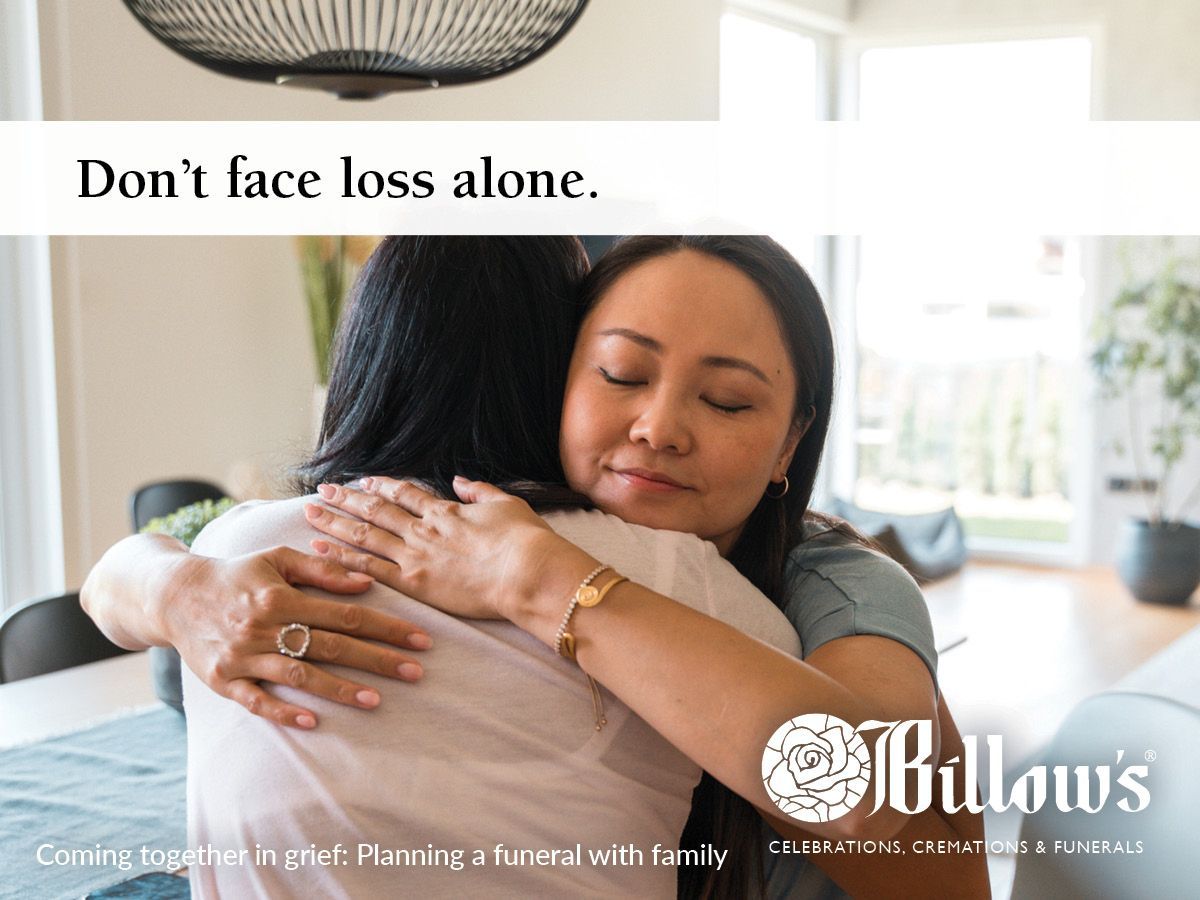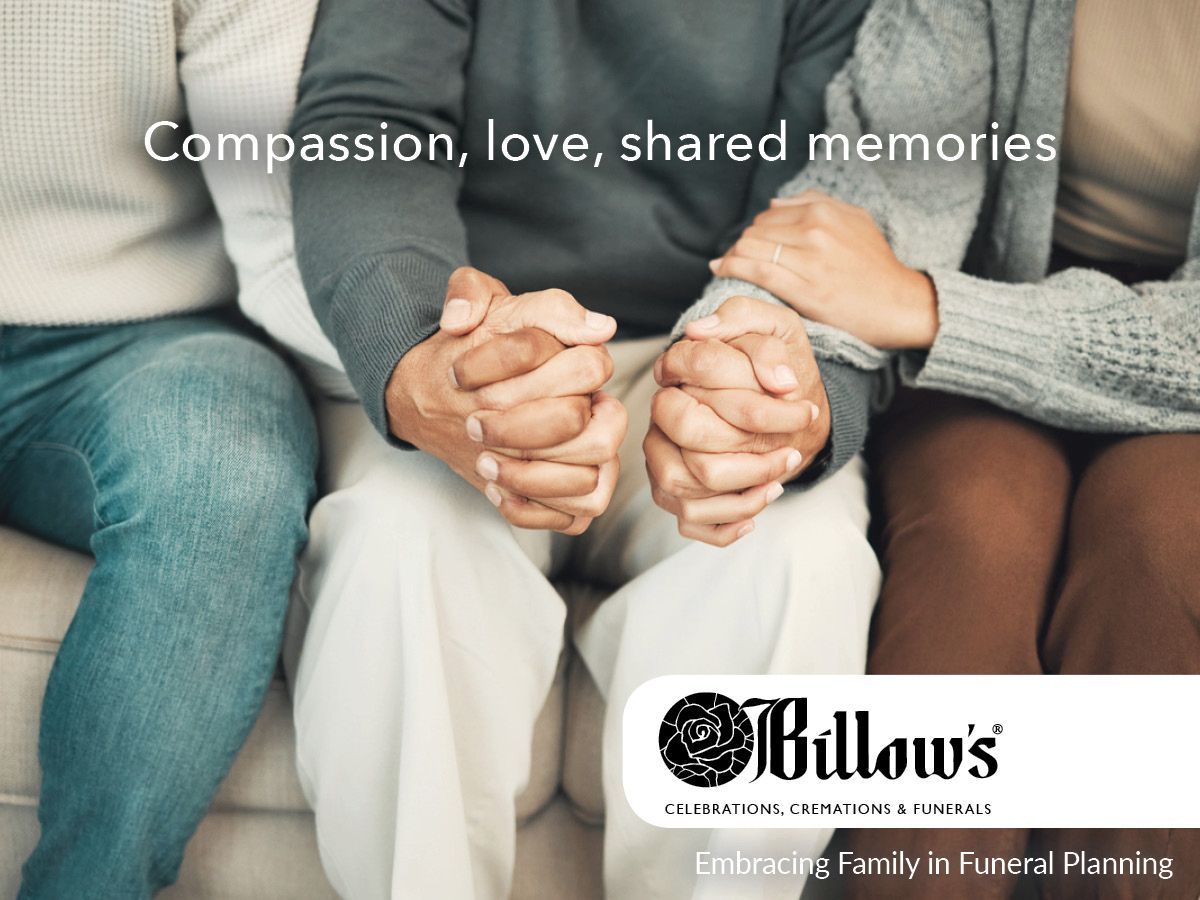5 Things Not to Do When Someone Is Grieving and What to Do Instead
When a friend loses a loved one, you want to do what you can to help them through this difficult time. But what does that support look like? Sometimes, when we attempt to help friends who are grieving, we end up saying and doing things that may not be all that beneficial. Some common attempts to be of service may actually be better off avoided. What should you not do when a friend is grieving?
What Not to Do When Someone Is Grieving
Don’t: Try to “fix” their emotions.
Do: Acknowledge their grief.
It’s hard to see someone you love in pain. A natural response is to try to relieve them of their overwhelming emotions. But that inkling can do more harm than good. There’s no way to fix the pain of loss, and your friend needs to be able to grieve at their own pace. Nothing you say or do will push them through the grieving process faster. Plus, you don’t want them to rush through grief. It’s healthier for them to come to terms with their loss at the speed that works best for them.
Instead of telling them things that you think will make them feel better, acknowledge how they feel. Rather than tell them that they’ll feel better over time, let them know that how they’re feeling right now is valid. Remind them that it’s okay to feel all these different emotions and that you’re here to listen to and support those feelings however you can.
Don’t: Hesitate to reach out.
Do: Offer ways to help as soon as possible.
When someone close to us loses a loved one, we often wonder what the right time is to reach out. If we just heard the news, should we wait a day or two? Surely, they’re overwhelmed, and us calling them may make us come across as overbearing. But the reality is that losing a loved one can make you feel lonely. It’s hard to imagine being in a world without that person. Rather than wait to reach out, it’s better to contact them as soon as you hear the news and let them know that they’re not alone. Give them a call when you can. If they answer, offer your condolences and support, and listen to what they need most. If they don’t answer, leave a message, but don’t tell them to call you back. Just give them the option to call you if they need you or want to talk.
If you do get through to your friend or if they call you back, do your best to offer specific support. Many people are hesitant to say yes to help. They may think that you saying that you’ll do anything that they need is just you trying to be nice rather than you offering support. They may also struggle to come up with ways that they need help, which will result in them saying that they don’t need help even if they do. Try to offer specific ways you can be of service. Ask if they want you to babysit their kids while they have to plan the funeral or suggest making some easy-to-reheat dinners to get them through the week. It’s also helpful just to ask if they want some company. Because this period of time can be lonely, they may just appreciate having someone by their side, even if all they’re doing is running errands.
Don’t: Compare your loss to theirs.
Do: Offer your experience if asked.
When a friend loses a loved one, you may want to say, “I know how you feel.” And you may mean the sentiment well, but the reality is that you don’t know how they feel at all. Even if you and your friend both lost someone, such as both losing a parent, you don’t know what their relationship was like. You don’t know how much they will miss them in their life. You don’t know how they mourn. How you felt when you lost someone close to you may be entirely different from how they feel right now.
That said, some people may want to talk about shared experiences. Don’t bring it up on your own, but if your friend asks what things were like when you lost someone close to you, be honest with them. They may be experiencing something different, but they might appreciate hearing what you went through to guide them through the decisions they’ll have to make. They may ask about your experience with funeral planning or how certain things changed after the loss of your loved one. They’re looking for your guidance, which is another way you can offer them support.
Don’t: Say empty platitudes.
Do: Listen.
One of the most common mistakes people make when talking to someone who lost a person close to them is to offer the same old empty platitudes. The biggest problem with these platitudes? They try to romanticize their loved one’s death. “They’re in a better place.” “At least they’re not suffering anymore.” These statements are said from a place of kindness, and they’re meant to put someone’s mind at ease, thinking that their loved one is at peace. But instead, they may just remind that person about the difficulties that have been faced over the course of a loved one’s illness. Or they may make the person think that you’re saying that their loved one is better off not being here with them. When you talk to someone who lost a loved one, it’s better to focus on that loved one’s life, not their death.
While people often wonder what the best thing to say to someone who lost a loved one is, the real answer is that the best thing to do is listen. Everyone processes loss differently. What comforts one person may not comfort another. Don’t try to lead the conversation. Just listen to what your friend wants to talk about. They may not want to speak at all but still find comfort in your company. In which case, just sitting in silence is one way to support them.
Don’t: Disappear after the funeral.
Do: Continue to check in often.
In the time leading up to the funeral and the funeral itself, your friend will receive many calls and visits, all from people who want to help. On the day of the funeral, they will likely be reintroduced to many people who knew their loved one. They may even become overwhelmed by all the people that they see. However, once the funeral ends and people begin returning home from their travels, those calls and visits will become less frequent. And that’s when the loneliness may really start to set in. Do your best not to disappear when the funeral ends.
Try to check in often. You don’t need to call all the time, but even a text that says, “Thinking of you,” will remind them that they’re not alone. You could also schedule a weekly call or visit to make sure that a week doesn’t go by with your friend being alone.
Grief is complicated. Although we like to imagine that there’s a pattern to it, the reality is that everyone experiences it differently. While this guide may help you to be there for your friend, the key to helping a friend who is grieving is listening to their needs. Be a sympathetic ear and a supportive shoulder, and you’ll know you’re on the right track to helping your friend.

















